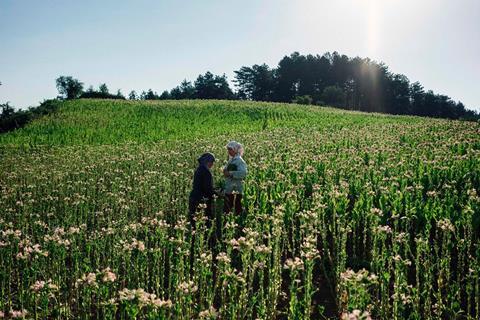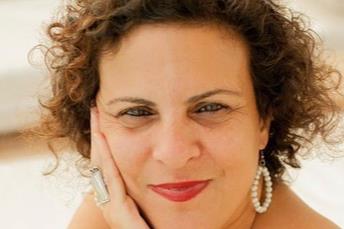
The prolific Palestinian screenwriter Suha Arraf is no stranger to international audiences, co-writing the world cinema classics The Syrian Bride and Lemon Tree, both directed by Eran Riklis.
She is now developing her second feature, Chentian, a female-focused story of survival and defiance in the face of adversity, and has been chosen to participate in this year’s Marrakech’s Atlas Workshops.
In 2014, Arraf’s directorial debut Villa Touma premiered in Critics’ Week at the Venice Film Festival. The film about three sisters who live a secluded life to escape the reality of living as Palestinian women in present-day Israel, made headlines in Venice as a stateless film when the Israeli fund that backed it asked for its money back following Arraf’s decision to submit it under the Palestinian flag.
Now, more than a decade later, Arraf is developing her second feature as a director. She describes Chentian as a “farmer movie, a story taking place in the area where I hail from”.
Female characters are again at the film’s core, as is Arraf’s own brand of Palestinian feminism. This time, the women have traded the urban backdrop of Villa Touma for life on a farm. While the story kicks off with 38-year-old, and still single, Waleed, who lives with his mother in a remote Palestinian village and is searching for a wife, the focus quickly shifts to the two sisters who come to be a part of his life and that of his younger brother Saeed.
Arraf would like to shoot in 2026. The house itself Arraf has already found “near Haifaa, it’s an isolated house,” she confirms — with further shooting in Jordan, and perhaps Italy or Cyprus.

“It’s a story of land and women, which is a complex relationship as both are responsible for creation,” Arraf adds. She says she is aiming to tackle the issues of female identity and sexuality under the twin burdens of occupation and the patriarchy.
Adding to the mix is, of course, a hint of politics: The land on which the two couples live risks being confiscated by the Israeli government, which plans to build a new road through it. Arraf says she loves “politics hidden in human stories”.
The project is being produced by May Odeh of Palestinian outfit Odeh Films, whose credits include 200 Meters and Aisha Can’t Fly Away. Odeh is also the co-founder of Berlin-based Mayana Films together with Zorana Mušikić.
Chentian is at the Atlas Workshops as a development project, with a finished script by Arraf. Lena Zimmerhackel from Germany is attached as co-producer and Arraf is searching for further co-producers.
“I’m hoping to meet a French co-producer for the film,” she confirms, but also a sales agent and distributors, along with most of the budget of the film — estimated to be around €800,000. She also wishes to make a bit of noise, “create a buzz about the film”, as she puts it.
Casting is on her mind already; she has a wish list that includes an actress she met at her gym, who has a problem with her leg, as does as one of her protagonists, Nabila.
“[The woman] finished the acting programme in Haifaa University — she’s tall, she’s beautiful, and she has this pain on her face… I’m thinking about her in the film because her pain is real,” says the filmmaker.
In between working on features, Arraf directs documentaries and hosts a podcast titled ’Ajraman’ - Palestinian slang that roughly translates as ‘This is why I like that’ - as well as working as a journalist.
She has also written another film, which she describes as a “small movie [with] an amazing story about family”.















![[L-R]: Amanda Villavieja, Laia Casanovas, Yasmina Praderas](https://d1nslcd7m2225b.cloudfront.net/Pictures/274x183/6/4/1/1471641_pxl_20251224_103354743_618426_crop.jpg)









No comments yet